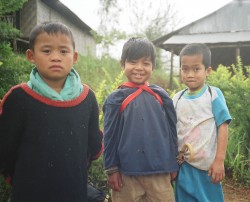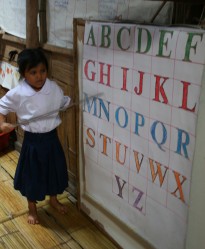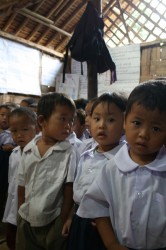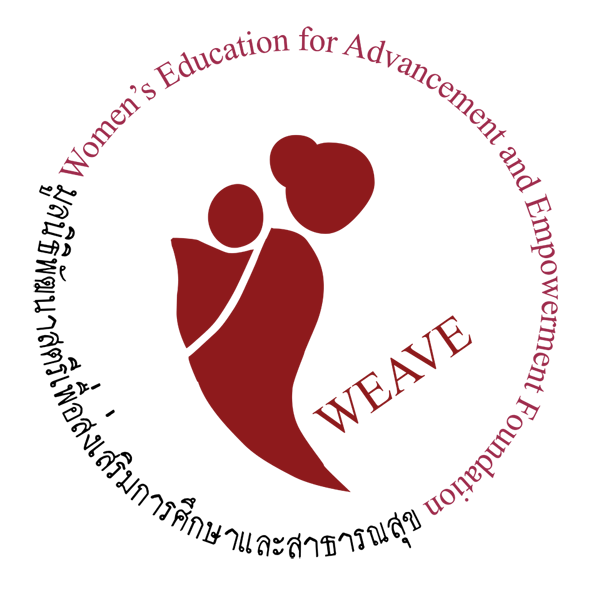 The Early Childhood Development Project provides technical and financial assistance to over 4,500 pre-school children in over 50 nursery schools managed by ethnic Burmese women’s organizations inside and outside of the refugee camps along the Thai-Burma and China-Burma borders. The overall objective of the project is to ensure that displaced Burmese children from the ages of 2.8 to 6 have access to quality early childhood programs which provide the foundations to develop their physical, emotional, intellectual and creative potentials. Pre-school children attend nursery school centers where teachers provide the necessary care and safe environment for the children; and capacity building to trainers so that they can teach parents about child care and development, children’s rights, special education and teaching techniques– just to name a few.
The Early Childhood Development Project provides technical and financial assistance to over 4,500 pre-school children in over 50 nursery schools managed by ethnic Burmese women’s organizations inside and outside of the refugee camps along the Thai-Burma and China-Burma borders. The overall objective of the project is to ensure that displaced Burmese children from the ages of 2.8 to 6 have access to quality early childhood programs which provide the foundations to develop their physical, emotional, intellectual and creative potentials. Pre-school children attend nursery school centers where teachers provide the necessary care and safe environment for the children; and capacity building to trainers so that they can teach parents about child care and development, children’s rights, special education and teaching techniques– just to name a few.
 Refugee communities face enormous constraints in meeting the needs of very young children due to the lack of overall awareness regarding early childhood and disability issues. In refugee situations, very young children are particularly vulnerable, especially those with a disability. They are often more exposed to health and safety risks, and are prone to being abandoned by their families who may not be able to cope with their demands as normal societal support structures become eroded.
Refugee communities face enormous constraints in meeting the needs of very young children due to the lack of overall awareness regarding early childhood and disability issues. In refugee situations, very young children are particularly vulnerable, especially those with a disability. They are often more exposed to health and safety risks, and are prone to being abandoned by their families who may not be able to cope with their demands as normal societal support structures become eroded.
 WEAVE utilizes an inclusive education approach to include children with special learning needs. Experience in other refugee settings demonstrate that putting the needs of disabled children first saves on having to adapt and put in special measures at a later date that discriminate between the overall population and people with disabilities. Simple and timely intervention at an early stage can prevent a lifetime of dependence.
WEAVE utilizes an inclusive education approach to include children with special learning needs. Experience in other refugee settings demonstrate that putting the needs of disabled children first saves on having to adapt and put in special measures at a later date that discriminate between the overall population and people with disabilities. Simple and timely intervention at an early stage can prevent a lifetime of dependence.
Early Childhood Development Project WEAVE trains local teachers so that the community’s skills for supporting schools and children are improved in the long term so that they are no longer reliant on help from NGO’s. Women leaders are trained in project management in order to make sure that the project is sustainable. WEAVE also encourages the parents to actively participate in the development of the potentialities of their children, so that there’s a continuity of approach in the nursery school and at home.
If you would like to be involved or learn more about WEAVE’s Early Childhood Development Project, please contact WEAVE at [email protected].
[button link=”http://www.weave-women.org/help/” color=”steelblue”] Learn how to help WEAVE [/button]
